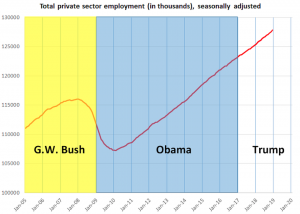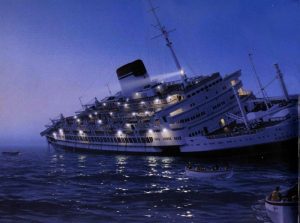A related informal fallacy is post hoc, ergo propter hoc (“after this, therefore because of this”) which holds that if one event follows another then the former must have caused the latter. (Similarly, cum hoc, ergo propter hoc involves the assertion “with this, therefore because of it.”) That Chamberlain’s government pursued a form of appeasement and then war followed does not imply that one necessitated the other. As before, the error lies in assuming that no other causes were operating.
(Newall, 265)
One form of the fallacy is the “follow the money trail” or the “who benefits” (que bono) principle in forming a historical argument.

Several historians of post Soviet Russia have fallen into this error. Their argument is that market reforms following the collapse of the Communist government have benefitted a handful of elite oligarchs and that by a form of post hoc
It is tempting to argue post hoc ergo propter hoc: that those who benefitted from the market reforms were not only its main defenders, but even its principal instigators. So, market reform is seen to be the result of a deliberate policy by far-sighted communist bureaucrats to convert their collective political authority into private negotiable assets, an interpretation favored by both the Left (Kotz andWeir, 1997) and the Right (Satter, 2004; Hedlund, 2000).
But a more careful exploration of the actual evidence does not support that tempting theory:
Many of them were young and far removed from the core decision-making process in the late 1980s and early 1990s. Their political influence came after they became wealthy, not before.
(Rutland, 339)
We have seen several comments on this blog making the same type of argument in relation to Christian origins. The example I list is not a dig at any person but simply an attempt to draw attention to what I see as a flaw in the argument that has been proposed here. Take this post as an invitation to strengthen the argument by removing their weaknesses:
- Christianity is a fraud that mostly benefited lying priests; therefore fraudsters, charlatans, must have created it. Compare the fallacy of the historians of modern Russia above.
Another one posted in the comments here argues for a 9/11 conspiracy the same way:
- US power has benefited from the 9/11 attacks; therefore US power by some conspiratorial process must have been behind the attacks.
Again, that’s another instance of the same fallacious reasoning.
It is a favourite of politicians:
- After X was elected the economy grew, therefore the economy grew because I was elected.


Another example:
- The Spanish Armada was thoroughly defeated by the English fleet and storms in 1588; from that time on we see the gradual demise of the Spanish empire: the loss of the Spanish Armada is said to be a major factor in the turning point in the fortunes of Spain’s power.
In fact, Spain’s empire continued without any losses for decades afterwards. It has also been shown that the loss of the Armada was followed by a serious development of the Spanish navy. There is little evidence that Spain and her place in the world suffered any long term damage as a result of the failure of 1588.
Fischer gives us another instance:
An example is provided by a female passenger on board the Italian liner Andrea Doria. On the fatal night of Doria‘s collision with the Swedish ship Gripsholm, off Nantucket in 1956, the lady retired to her cabin and flicked a light switch. Suddenly there was a great crash, and grinding metal, and passengers and crew ran screaming through the passageways. The lady burst from her cabin and explained to the first person in sight that she must have set the ship’s emergency brake!
(Fischer, 166)

To establish a hypothesis that event B was the result of the preceding event A the historical inquirer needs to point to evidence of a causal link. Simply declaring that “it is obvious” because one followed the other is not sufficient.
One frequently comes across this particular fallacy. Feel free to add more.
Fischer, David Hackett. 1970. Historians’ Fallacies: Toward a Logic of Historical Thought. New York: Harper.
Newall, Paul. 2009. “Logical Fallacies of Historians.” A Companion to the Philosophy of History and Historiography, edited by Aviezer Tucker and Mary Kane, Wiley-Blackwell.
Rutland, Peter. 2013. “Neoliberalism and the Russian Transition.” Review of International Political Economy 20 (2): 332–62. https://doi.org/10.1080/09692290.2012.727844.
